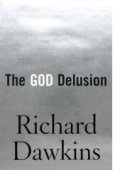 Richard Dawkins told us in the 1970s that all organisms are nothing more than gene machines, robot zombies built by molecules we loosely know as genes to no end other than to ensure the replication of those very molecules. There is no purpose here, although Dawkins anthropomorphically endowed the genes with selfishness. Later, he extrapolated this concept of self-replicating entities to concepts, patterns of thought, that exist only in the organism we know as Homo sapiens and that are duplicated not by sex and reproduction but through communication via the systems we call culture. These self-replicating entities he referred to as memes.
Richard Dawkins told us in the 1970s that all organisms are nothing more than gene machines, robot zombies built by molecules we loosely know as genes to no end other than to ensure the replication of those very molecules. There is no purpose here, although Dawkins anthropomorphically endowed the genes with selfishness. Later, he extrapolated this concept of self-replicating entities to concepts, patterns of thought, that exist only in the organism we know as Homo sapiens and that are duplicated not by sex and reproduction but through communication via the systems we call culture. These self-replicating entities he referred to as memes.
It became apparent very early in the development of his meme theory that although a nursery rhyme or the concept that walking under a ladder may somehow bring one misfortune are persistent memes that can traverse the generations through repetition from parent to child and in playgrounds the world over, one meme in particular seems to have been with us since the beginning of human culture. The idea that there is a god, a creator, a supernatural entity that brought humanity and all the universe into existence purely for our benefit.
Dawkins believes this is a nonsense. Evolution teaches us that humans exist because as gene machines our ancestors were better suited to the environments they encountered and able to reproduce. Each one of us can trace our ancestry through a long-line of survivors all the way back to the Cambrian Explosion and beyond to the dawn of life on earth. However, consciousness brought with it the realisation of death, our emotional centres couldn’t cope with the death of loved ones nor the thought of our own mortality. It also brought with it curiosity about the very origins of the world and ourselves. Put the two together in the form of some kind of supernatural creator and the potential for this consciousness to persist after death and you have a good-feeling meme that explains everything and wards off the fear of death in one fell swoop.
Unfortunately, this simple meme, which may have seen our ancestors through many a dark night, spread and diverged into as many different forms as there are languages on the planet, so that today we have the Christian, Islamic, Hindu, Sikh, Juddaic, Neopaganist, Jeddist, etc version of this meme and all the trouble its interpretation brings.
Dawkins wants to set the record straight, there is no “God” of the organised religions. That god is as real as the teapot that orbits the far-side of the Sun, he says. In The God Delusion he attempts to persuade the believers that the very thing on which their faith is founded is nothing more than a self-replicating cultural entity going by the name of meme.
His thesis wins him no friends among the religious and the specifics of his argument are not always accepted by science (but that’s the way of science). But, at least he’s honest. The death of religion itself, Dawkins says, would free us from the prehistoric or at best mediaevel, attitudes and rules that have shackled us for generations to the notion of an afterlife for us and our loved ones. He sees much more purpose in the beauty of life itself without resorting to a benevolent creator.
If deleting this meme from the gene machines we know as Homo sapiens were possible, we might truly see the dawn of an age of rationality in which killing because one’s imaginery friend advised one to do so was no more.